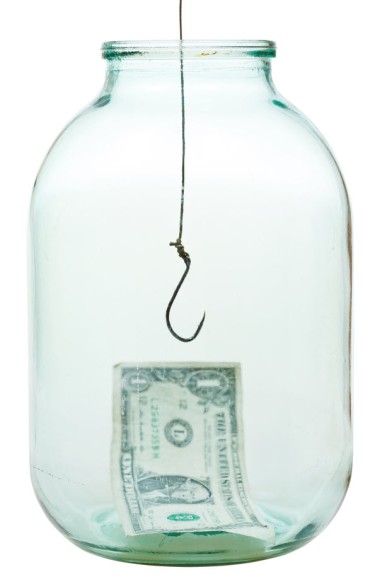Cannabis News
The Rise and Fall of Pioneer Pot Markets
Published
10 months agoon
By
admin

The Rise and Fall of Pioneer Pot Markets
When Colorado and Washington made history in 2012 as the first U.S. states to legalize recreational marijuana, they kicked off a green rush that rapidly transformed the cannabis industry. Colorado in particular saw a meteoric rise, with sales soaring to $2.2 billion in 2020 and the state raking in hundreds of millions in cannabis tax revenue. Some local entrepreneurs rode this wave to stunning success, building national brands from humble beginnings.
Fast forward to 2024 and the Rocky Mountain high has worn off. Colorado dispensaries that once couldn’t keep up with demand now sit shuttered. Statewide sales have plummeted over 30% from their peak. While still a sizable market, the trailblazing industry that put Colorado on the cannabis map is now a cautionary tale.
1,200 miles to the west, California – the country’s largest legal weed market – is facing its own reckoning. Despite the Golden State’s legendary cannabis culture and ideal growing climate, many legitimate operators are struggling to stay afloat. But while Colorado’s crash stems from market saturation and competition from newly legal neighbors, California’s decline has more to do with over-taxation enabling the tenacious black market to undercut legal businesses.
As more and more states jump on the legalization bandwagon, policymakers are looking to these early adopters to understand how to establish a stable and sustainable cannabis sector. In this article, we’ll unpack the factors behind the slumping sales in Colorado and California, and explore what lessons emerging marijuana markets can take away to avoid the same pitfalls. The great American pot experiment is far from over.
Colorado’s cannabis industry, once a roaring success story, has fallen on hard times. According to a recent Politico article, statewide marijuana sales have plunged from a high of $2.2 billion in 2020 to just $1.5 billion in 2023 – a jaw-dropping decline of over 30% in just three years. This has led to widespread layoffs, business closures, and a lot of nervous industry stakeholders.
So what’s behind this Rocky Mountain revenue recession? Industry insiders point to a perfect storm of factors. “It’s like the wind in our cannabis sails in Colorado has just been sucked all the way out,” laments Wanda James, founder of Denver dispensary Simply Pure.
A key culprit is the very success that Colorado pioneered – the spread of legalization to neighboring states like New Mexico and Arizona, which has siphoned off customers. “We’re a victim of our own success,” explains Jordan Wellington, a partner at Denver-based cannabis policy firm Strategies 64. “New markets drawing investment away, new markets drawing purchasing away — all of these different things combined into the soup of the challenges [facing] Colorado.”
Businesses have had to adapt to this new reality in different ways. Some, like Dank Dispensary in Denver, have had to cut back on employee perks and parties. Others, like Southern Colorado retailer Maggie’s Farm, have shuttered multiple locations.
Cannabis jobs in the state have plummeted 16% in the past year alone, according to a report from Vangst.
But while painful, this market contraction is a natural evolution for maturing cannabis markets, explains Beau Whitney of Whitney Economics. “Initially, supply is low and profits are high, which draws in new businesses. As supply and consumer access catch up, prices drop.”
As more states legalize, Whitney predicts this boom-and-bust pattern will ease and interstate prices will normalize.
In the meantime, Colorado businesses are adjusting to compete in a crowded and dynamic market. Denver dispensary Simply Pure saw sales spike 60% during the COVID-19 lockdowns, only to come crashing down when cultivators ramped up production.[1] “The only problem … for a long time was that there was never enough weed,” recalls Jon Spadafora, CEO of wholesale cultivator Veritas Fine Cannabis. “We all overestimated the market. We all believed a little bit too much of our own PR.”
Veritas has since downsized from 144 employees to just 21.
This thinning of the herd is inevitable as the industry matures and stabilizes. But those businesses that are able to adapt and ride out the turbulence could be well-positioned for the next chapter of Colorado’s cannabis story.
As more states enter the legal fray, Colorado’s hard-won experience and expertise could prove invaluable. The green rush may be over, but the Centennial State’s influence is sure to endure.
While Colorado’s cannabis market struggles are largely due to increased competition and market saturation, California’s industry woes stem from a different root cause: overtaxation. Despite high hopes that legalization would cripple the illicit market, California’s hefty tax rates have instead enabled illegal operators to continue undercutting legal businesses.
California imposes some of the steepest cannabis taxes in the country, with rates up to 40% in some jurisdictions when state and local levies are combined.[1]
This has kept prices for legal products artificially inflated compared to the illicit market. “The tax rate is way too high,” argues Javier Montes, owner of Wilmington dispensary Delta-9 THC. “People got used to the black market, and then they were supposed to transition to the legal market, but there’s no incentive to.”[2]
This over-taxation has effectively acted as “prohibition 2.0”, allowing illegal grow operations and unlicensed dispensaries to thrive. Ironically, this has attracted an unexpected player: Chinese organized crime.
While Mexican cartels have largely pivoted to more profitable hard drugs like fentanyl, Chinese drug trafficking organizations have moved in to exploit the lucrative California cannabis black market.[3] Authorities have busted numerous large-scale Chinese grow operations hidden in suburban homes in recent years.[4]
But taxation is far from the only issue plaguing California’s legal cannabis industry. The state’s onerous and costly regulations have created immense barriers to entry for legal businesses. Lengthy licensing processes, restrictive zoning laws, and expensive compliance requirements have kept many legacy operators from transitioning to the legal market.[5] This has perpetuated the illicit industry, as many longtime growers and sellers see little benefit in going legit.
Furthermore, California’s patchwork of local cannabis laws has created a confusing and inconsistent market landscape. While the state legalized recreational use in 2016, municipalities can still ban cannabis businesses outright. As of 2022, fewer than 40% of California cities and counties allowed any type of legal cannabis operation.[6] This has left large swaths of the state underserved by legal operators and ripe for illicit activity.
These factors have led to a California cannabis market that is far underperforming its potential. Despite having nearly twice the population of Colorado, California’s legal sales in 2022 were only moderately higher at around $5.3 billion.[7] For the state to fully realize the promise of cannabis legalization, policymakers will need to overhaul the current tax and regulatory scheme to support licensed businesses and motivate illicit operators to transition to the legal market. Until then, California’s cautionary tale will continue.
SOURCES:
[1] https://taxfoundation.org/state-cannabis-taxes-2022/
[2] https://www.latimes.com/california/story/2022-12-20/california-cannabis-industry-layoffs
[3] https://www.latimes.com/california/story/2022-07-19/california-marijuana-china-cartels
[7] https://www.politico.com/news/2021/10/23/california-legal-illicit-weed-market-516868
As more states consider cannabis legalization, policymakers would be wise to study the cautionary tales of Colorado and California. These pioneering markets offer valuable lessons on what works – and what doesn’t – when it comes to crafting a successful and sustainable cannabis industry.
First and foremost, states must resist the temptation to overtax the newly legal market. While cannabis may seem like a cash cow for revenue-hungry governments, excessive taxation can backfire by perpetuating the illicit market.
California’s punitive tax rates, reaching up to 40% in some areas[1], have kept illegal operators in business and undercut the very legal industry the state is trying to foster. Policymakers should instead aim for a tax sweet spot – high enough to generate meaningful revenue, but low enough to motivate illicit operators to transition to the legal market.
Secondly, regulations must be designed with an eye toward fairness and equity. Overly burdensome licensing requirements, zoning restrictions, and compliance costs can shut out smaller operators and communities disproportionately impacted by the War on Drugs.
Equity must be baked into the framework of the legal market from day one, with measures like expedited licensing for legacy operators, fee waivers for social equity applicants, and reinvestment of cannabis tax revenue into hardest-hit neighborhoods.
By lowering barriers to entry and providing support, states can create an inclusive industry that benefits a broad range of stakeholders.
Finally, policymakers should embrace the free market’s ability to self-correct. As Colorado’s story illustrates, the invisible hand is already at work balancing supply and demand in maturing cannabis markets.
While the industry’s growing pains have been undeniably painful, with layoffs and closures roiling the once-booming market, this contraction is a natural stage in the evolution of a new sector.
As Beau Whitney of Whitney Economics notes, “As more states legalize, Whitney predicts this boom-and-bust pattern will ease and interstate prices will normalize.”[2] By allowing market forces to weed out inefficiencies and reward innovation, states can cultivate a leaner, more resilient cannabis industry.
Of course, the cannabis industry is still in its infancy, and there will undoubtedly be more lessons to learn as legalization spreads.
But by heeding the hard-won wisdom of trailblazers like Colorado and California – keeping taxes reasonable, prioritizing equity, and letting the market work – states can lay the foundation for a cannabis industry that is built to last. The road may be rocky, but with smart, forward-thinking policy, the future of legal cannabis is bright.
SOURCES:
[1] https://taxfoundation.org/state-cannabis-taxes-2022/
[2] https://www.politico.com/news/2023/06/09/colorado-cannabis-market-crash-cautionary-tale-00101170
THE RACE TO THE BOTTOM, READ ON…
You may like
-


White House Finally Comments On Marijuana Industry
-


Stop Using Bat Poop to Fertilize Your Weed Plants Immediately, Here is Why…
-


The History Behind April Fool’s Day
-


Star signs and cannabis strains: April 2025 horoscopes
-


Does Comfort Food Actually Help
-


Connect to cannabis history with three legacy strains from Paradise Seeds
Cannabis News
Stop Using Bat Poop to Fertilize Your Weed Plants Immediately, Here is Why…
Published
13 hours agoon
April 1, 2025By
admin

Don’t Fertilize Your Weed with Bat Poop
Fertilization is a critical step for growing healthy marijuana plants.
They help provide essential nutrients for marijuana in various stages of growth, while promoting plant growth. There are dozens of different fertilizers to choose from in the market; growers can choose based on budget, nutrients needed, location, season, and much more. But not all fertilizers are made equally – of course, some are of better quality than others.
That said, there are some rather unusual fertilizers that can be used on plants. These may include, but are not limited to: coffee, milk, grass clippings, banana peels, fish tank water, potato water, and even urine! Yes, it does sound strange, but to gardening enthusiasts, there is nutritional value to be found in each of these things, which can make them suitable fertilizers depending on the circumstances.
For example, grass clippings make excellent mulch and can provide potassium, nitrogen, and phosphorus. Urine is a potent source of nitrogen as well as phosphorus. Banana peels are rich in calcium, which is excellent for promoting root growth while helping supply oxygen to the soil.
But what about bat poop? Also known as guano, bat poop has been said to work as a plant fertilizer because it’s rich in nitrogen, potassium, phosphorus, and other nutrients. Unfortunately, using bat poop as a plant fertilizer can also be dangerous. So if you don’t really know what you are doing, bat poop as a fertilizer can be extremely risky.
Bat Poop Fertilizer Kills 2 NY Men
On December 2024, news of two men hailing from Rochester, New York, dying went viral.
The cause of death was dangerous fungus, in the bat poop that they were using to fertilize their marijuana plants. Both men grew their own marijuana plants for medical consumption, but unfortunately developed histoplasmosis after breathing toxic fungal spores from the guano.
One of the men was aged 59 years old; he bought bat poop online to use as fertilizer for his plants. Meanwhile, the other was a 64-year-old male who found guano in his attic, then decided to use it to fertilize his cannabis plants. They both developed similar symptoms, including chronic coughs, fever, severe weight loss, and respiratory failure. The case was also discussed in the Open Forum Infectious Diseases medical journal.
Is there a safe way to use bat poop as fertilizer? If you ask me, I truly can’t understand why one would use guano as fertilizer when there are so many other proven safe alternatives out there that are simply not as risky. According to the University of Washington, one must always wear a dust mask each time you open a bag containing soil amendments. That’s because a mask will greatly decrease the chances of breathing in fungal spores, which could be potentially dangerous. They also go on to explain that yes, guano is indeed used as fertilizer for its valuable nitrogen content but it still isn’t without its own risks, particularly of developing Histoplasma – the same condition that killed the two men.
Make Your Own Safe Fertilizers At Home
There are many other safe, affordable – and even free – fertilizers you can feed your marijuana plants with. It doesn’t have to cost a fortune nor does it have to be risky to your health.
Check out these easy, low-cost, DIY fertilizers for weed:
-
Coffee grounds are abundant in nitrogen, which makes it perfect for the vegetative stage of marijuana plants. They are also a fantastic source of organic materials and green waste, which contain other vital nutrients. When the coffee grounds decompose, they create soil aggregates that improve soil aeration and its water retention capabilities.
Mix around 2 grams of coffee ground for every liter of soil. Measuring its pH levels is also helpful, since you want it to be between 6 to 6.5
-
Crushed eggshells are a great way to ensure no eggshells go to waste. It’s rich in calcium plus other minerals that are effective in improving overall plant structure, health, and growth. In fact, so many gardeners and farmers commonly use crushed eggshells to help boost plant growth – and it will work just as well for marijuana plants.
They’re really easy to use, too! Just mix eggshells into the soil, or steep them into water then pour into the soil for a calcium-packed feed.
-
Banana tea or water is rich in potassium and magnesium, making it perfect as a feed during the marijuana plant’s flowering stage. You can use banana peels differently: with 3 to 5 banana peels, soak it in water for 2 days. Then you can use the water on your plants, and even leave the banana peels as compost for your garden.
-
Wood ash from your fireplace or other sources is a great source of phosphorus and potassium. Simply sprinkle some wood ash over marijuana during the final flower phase. Just use 1 or 2 grams of ash for every liter of substrate. Be careful not to use too much wood ash, or it can make the soil too alkaline.
-
Animal manure, such as those from cows, rabbits, or horses, make excellent organic fertilizers. Just be sure that they’re composed properly so that you avoid introducing weed seeds, or pathogens.
These low-cost fertilizers are also natural and effective. There’s no reason for you to turn to bat poop as fertilizer, even if you’re in a bind.
Conclusion
Guano or bat poop is a poor choice of fertilizer if you don’t know what you are doing. It’s risky and potentially dangerous – just not worth it. Instead, fertilize your marijuana plants with these options mentioned.
BEST POOP FOR CANNABIS PLANTS, KEEP READING…
Cannabis News
Getting THC Edibles in Your Edible Arrangement?
Published
3 days agoon
March 30, 2025By
admin

Edible Arrangements Leans into Intoxicating Hemp Products: A Strategic Expansion
Edible Arrangements, a brand renowned for its vibrant fruit bouquets and sweet treats, is embarking on a bold new venture into the hemp and THC-infused edibles market. Through its parent company, Edible Brands, the company has launched Edibles.com, an e-commerce platform offering a variety of hemp-based products such as THC-infused beverages, gummies, and snacks. This strategic move taps into the burgeoning demand for cannabis-related wellness products and reflects a deliberate expansion beyond traditional offerings.
Introduction to Edible Arrangements and Its New Venture
Edible Arrangements was founded in 1999 by Tariq Farid, who envisioned a unique way to gift fresh fruit arrangements that were both visually appealing and delicious. Over the years, the company has grown to become a global brand with hundreds of locations across the United States and internationally. However, the company’s latest initiative marks a significant departure from its traditional fruit-based offerings, signaling a broader strategic shift towards becoming a comprehensive food, health, and wellness company.
The New Venture: Edibles.com
Edibles.com debuted on March 20, 2025, starting operations in Texas with ambitious plans to expand rapidly across Southeastern states like Florida and Georgia. The platform is designed to cater to consumers aged 21 and older, providing low-dose THC products that comply with the 2018 Farm Bill, which legalized hemp containing less than 0.3% THC by dry weight. Select products will also be available for nationwide shipping where legally permitted, leveraging the company’s existing logistics infrastructure.
Product Lineup
The initial product lineup includes a range of THC-infused beverages, gummies, and snacks. These products are designed to appeal to both seasoned cannabis users and newcomers looking for low-dose, accessible options. The company emphasizes the importance of quality and safety, ensuring that all products undergo rigorous testing to meet high standards of purity and potency.
Strategic Alignment and Market Potential
The move into the infused edibles market aligns with Edible Brands’ vision of becoming a broader food, health, and wellness company. CEO Somia Farid Silber highlighted that the infused edibles market is a fast-growing sector with high consumer demand for safe and reliable products. The company is leveraging its extensive franchise network to deliver these items while planning to open brick-and-mortar stores under the Incredible Edibles brand.
Market Trends and Consumer Demand
The cannabis industry, particularly the segment focused on hemp and THC-infused products, has seen exponential growth in recent years. This growth is driven by increasing consumer interest in wellness and recreational products, as well as evolving legal landscapes that have opened up new markets. Edible Arrangements is positioning itself to capitalize on this trend by offering products that cater to both health-conscious consumers and those seeking unique gifting options.
Challenges and Opportunities
While this expansion offers significant growth potential, it also comes with challenges such as navigating varying state regulations and ensuring product safety and quality. The company aims to address these issues through robust infrastructure and consumer advocacy. Thomas Winstanley, a cannabis industry veteran leading Edibles.com, emphasized the company’s unique position to drive innovation in this emerging market.
Regulatory Challenges
One of the primary challenges facing Edible Arrangements is the complex regulatory environment surrounding cannabis products. Laws regarding the sale and distribution of THC-infused products vary significantly from state to state, requiring the company to adapt its operations to comply with local regulations. This includes ensuring that products meet specific THC content limits and are marketed responsibly.
Quality Control and Safety
Another critical challenge is maintaining high standards of quality and safety across all products. Edible Arrangements is investing heavily in testing and quality assurance processes to ensure that all products meet stringent safety standards. This includes partnering with reputable suppliers and implementing rigorous testing protocols to verify the potency and purity of all THC-infused items.
Consumer Education and Advocacy
As part of its strategy, Edible Arrangements is also focusing on consumer education and advocacy. The company recognizes that many consumers are new to cannabis products and may have questions about usage, dosage, and safety. To address this, Edibles.com will provide comprehensive product information, dosage guidelines, and resources for consumers to learn more about the benefits and risks associated with THC-infused products.
Marketing Strategy
Edible Arrangements plans to leverage its existing brand recognition and customer loyalty to promote its new line of hemp-based products. The company will utilize social media, email marketing, and targeted advertising to reach its target audience. Additionally, partnerships with influencers and cannabis industry experts will help build credibility and drive awareness about the brand’s entry into this new market.
Future Expansion Plans
In the coming months, Edible Arrangements plans to expand its operations beyond Texas, targeting key markets in the Southeast. The company is also exploring opportunities to open physical stores under the Incredible Edibles brand, which will offer a curated selection of THC-infused products alongside traditional Edible Arrangements items.
Incredible Edibles Stores
The Incredible Edibles stores will serve as a unique retail experience, combining the company’s traditional fruit arrangements with its new line of hemp-based products. This format will allow customers to explore and purchase THC-infused items in a welcoming and educational environment. The stores will also host workshops and events focused on cannabis education and wellness, further enhancing the brand’s position as a leader in this emerging market.
Conclusion
Edible Arrangements’ foray into the hemp and THC-infused edibles market marks a significant strategic shift for the company. By leveraging its brand recognition and logistical capabilities, Edible Arrangements is poised to become a major player in this rapidly growing sector. While challenges exist, the company’s commitment to quality, safety, and consumer education positions it well for success in this new venture.
As the cannabis industry continues to evolve, Edible Arrangements’ entry into this market underscores the broader trend of mainstream brands embracing cannabis-related products. This move not only expands the company’s offerings but also reflects a broader cultural shift towards greater acceptance and normalization of cannabis use.
HEMP-DERIVED THC DELIVERIES ARE HERE, READ ON…
Cannabis News
Is Cannabis Legal in California Right Now?
Published
4 days agoon
March 29, 2025By
admin

California Supreme Court Upholds Cannabis Legalization
In a landmark decision, the California Supreme Court recently reaffirmed the legality of cannabis in the state by de-publishing a prior appellate ruling. This move effectively prevents the lower court’s opinion from being used as legal precedent in future cases, ensuring that California’s cannabis laws remain intact. The decision is a significant victory for the state’s legal cannabis industry and reinforces California’s position as a leader in cannabis legalization.
Background of the Case
The case, JCCrandall v. County of Santa Barbara, originated from a lawsuit filed by Lompoc property owner Janna Caron Crandall. She challenged the County of Santa Barbara’s decision to allow cannabis transportation on an easement road crossing her property. Crandall argued that the easement’s terms prohibited federally illegal activities, thus making the county’s permit approval unlawful. This challenge was rooted in the fact that cannabis remains illegal under federal law, despite being legalized in California.
The Legal Framework
California legalized recreational cannabis in 2016 with the passage of Proposition 64, also known as the Adult Use of Marijuana Act (AUMA). This law allowed adults 21 years and older to possess and use cannabis for recreational purposes. However, the federal government still classifies cannabis as a Schedule I controlled substance, making it illegal under federal law. This dichotomy between state and federal laws has created legal complexities and challenges for cannabis businesses operating in California.
The Appellate Court Ruling
In January 2025, the Court of Appeal sided with Crandall, suggesting that California’s cannabis regulations were unlawful due to cannabis being federally illegal. This ruling was seen as a potential threat to the state’s cannabis industry, as it implied that federal law could preempt state laws allowing cannabis use and sale. The appellate court’s decision was based on the argument that the easement agreement prohibited activities that were illegal under federal law, and since cannabis is federally illegal, allowing its transportation on the easement would violate the terms of the agreement.
Implications of the Appellate Ruling
If the appellate court’s decision had stood, it could have had far-reaching implications for California’s cannabis industry. It would have potentially opened the door for similar challenges to cannabis operations across the state, undermining the legal framework that has been established since Proposition 64. This could have led to increased legal uncertainty and risk for cannabis businesses, potentially stifling growth and investment in the sector.
The Supreme Court Decision
The California Supreme Court’s decision to de-publish the appellate court’s ruling effectively nullifies its impact as a legal precedent. This means that the opinion cannot be cited or relied upon in future cases, ensuring that California’s cannabis laws remain secure. The Supreme Court’s action was in response to a request from the Department of Cannabis Control and other stakeholders who sought to protect the state’s cannabis regulations.
Statement from the Department of Cannabis Control
“We are pleased that the Court agreed to address that Court of Appeal decision at the Department of Cannabis Control’s request, supporting California law and its legal cannabis industry,” said DCC Director Nicole Elliott. This statement reflects the relief and support within the industry and regulatory bodies for the Supreme Court’s decision.
Impact of the Supreme Court Decision
The Supreme Court’s decision has several key implications for California’s cannabis industry and the broader legal landscape:
-
Legal Certainty: By preventing the appellate court’s opinion from being used as precedent, the Supreme Court has provided legal certainty for cannabis businesses. This clarity is crucial for investors, operators, and consumers alike, as it ensures that the industry can continue to operate without the threat of federal preemption being used to undermine state laws.
-
Industry Growth: The decision supports the continued growth and development of California’s cannabis industry. With legal certainty, businesses are more likely to invest in expansion, innovation, and compliance, which can lead to increased economic benefits for the state.
-
Regulatory Framework: The ruling reinforces the authority of state regulatory bodies, such as the Department of Cannabis Control, to oversee and enforce cannabis laws. This ensures that the industry operates within a well-defined legal framework, which is essential for maintaining public safety and trust.
-
Consumer Access: For consumers, the decision means that access to legal cannabis will remain unchanged. This is important for both recreational users and patients who rely on cannabis for medical purposes.
-
Federal-State Relations: While the decision does not change federal law, it underscores the ongoing tension between state and federal cannabis policies. It highlights the need for continued advocacy for federal reform to align with the growing number of states that have legalized cannabis.
Historical Context of Cannabis Legalization in California
California has been at the forefront of cannabis legalization efforts in the United States. The state’s journey towards legalizing cannabis began with the passage of Proposition 215 in 1996, which allowed for the medical use of cannabis. This was followed by Proposition 64 in 2016, which legalized recreational cannabis.
Proposition 215: Compassionate Use Act
Proposition 215, also known as the Compassionate Use Act, was a groundbreaking piece of legislation that allowed patients with certain medical conditions to use cannabis with a doctor’s recommendation. This law marked the beginning of a shift in public perception and legal treatment of cannabis, paving the way for broader legalization efforts.
Proposition 64: Adult Use of Marijuana Act (AUMA)
Proposition 64 expanded on Proposition 215 by legalizing the recreational use of cannabis for adults. It established a regulatory framework for the cultivation, distribution, and sale of cannabis, creating a multibillion-dollar industry in California. The law also included provisions for taxation, licensing, and environmental protection.
Challenges and Opportunities in the Cannabis Industry
Despite the legal victories, the cannabis industry in California faces several challenges:
-
Regulatory Compliance: Businesses must navigate complex state and local regulations, which can be costly and time-consuming. Compliance with these regulations is essential to avoid legal issues and maintain operational licenses.
-
Market Competition: The California cannabis market is highly competitive, with many licensed operators competing for market share. This competition can drive innovation but also poses challenges for smaller businesses trying to establish themselves.
-
Federal Banking Restrictions: Due to federal illegality, cannabis businesses often face difficulties accessing traditional banking services. This forces many companies to operate largely in cash, which can increase security risks and complicate financial management.
-
Environmental Concerns: Cannabis cultivation can have environmental impacts, such as water usage and energy consumption. The industry Is working to address these concerns through sustainable practices and regulatory compliance.
-
Social Equity Programs: California has implemented social equity programs aimed at supporting individuals and communities disproportionately affected by the war on drugs. These programs provide resources and opportunities for entry into the cannabis industry.
Future of Cannabis Legalization
The California Supreme Court’s decision is part of a broader national conversation about cannabis legalization. As more states legalize cannabis, there is growing pressure for federal reform. Several bills have been introduced in Congress to address issues such as banking access and federal preemption, but comprehensive reform remains elusive.
Federal Reform Efforts
Efforts to reform federal cannabis laws include bills like the MORE Act, which would decriminalize cannabis at the federal level, and the SAFE Banking Act, which aims to provide banking access to cannabis businesses. While these bills have seen progress, they face significant hurdles in becoming law.
International Perspectives
Internationally, countries like Canada and Uruguay have fully legalized cannabis, providing models for how federal legalization could work. These countries have established national regulatory frameworks that address issues like taxation, public health, and international trade.
Conclusion
The California Supreme Court’s decision to uphold the legality of cannabis in the state is a significant victory for the industry and its stakeholders. It ensures that California can continue to lead in cannabis legalization and regulation, providing a model for other states and countries. As the legal landscape evolves, it is crucial for ongoing advocacy and reform efforts to address the remaining challenges and opportunities in the cannabis sector.
CANNABIS IN CALIFORNIA HAS PROBLEMS, READ ON…

White House Finally Comments On Marijuana Industry

Stop Using Bat Poop to Fertilize Your Weed Plants Immediately, Here is Why…

The History Behind April Fool’s Day

Star signs and cannabis strains: April 2025 horoscopes

Does Comfort Food Actually Help

Connect to cannabis history with three legacy strains from Paradise Seeds

This State’s Cannabis Revenue Keeps Pouring In

Major Bloom: Cultivating community, creativity, and cannabis in Worcester

How a Colorado operator stumbled onto ‘blueprint for laundering marijuana’

Northern Ireland: Man charged after £425,000 worth of cannabis seized

Distressed Cannabis Business Takeaways – Canna Law Blog™

United States: Alex Malyshev And Melinda Fellner Discuss The Intersection Of Tax And Cannabis In New Video Series – Part VI: Licensing (Video)

What you Need to Know

Drug Testing for Marijuana – The Joint Blog

NCIA Write About Their Equity Scholarship Program

It has been a wild news week – here’s how CBD and weed can help you relax

Cannabis, alcohol firm SNDL loses CA$372.4 million in 2022

A new April 20 cannabis contest includes a $40,000 purse

Your Go-To Source for Cannabis Logos and Designs

UArizona launches online cannabis compliance online course
Trending
-

 Cannabis News2 years ago
Cannabis News2 years agoDistressed Cannabis Business Takeaways – Canna Law Blog™
-

 One-Hit Wonders2 years ago
One-Hit Wonders2 years agoUnited States: Alex Malyshev And Melinda Fellner Discuss The Intersection Of Tax And Cannabis In New Video Series – Part VI: Licensing (Video)
-

 Cannabis 1012 years ago
Cannabis 1012 years agoWhat you Need to Know
-

 drug testing1 year ago
drug testing1 year agoDrug Testing for Marijuana – The Joint Blog
-

 Education2 years ago
Education2 years agoNCIA Write About Their Equity Scholarship Program
-

 Cannabis2 years ago
Cannabis2 years agoIt has been a wild news week – here’s how CBD and weed can help you relax
-

 Marijuana Business Daily2 years ago
Marijuana Business Daily2 years agoCannabis, alcohol firm SNDL loses CA$372.4 million in 2022
-

 California2 years ago
California2 years agoA new April 20 cannabis contest includes a $40,000 purse







